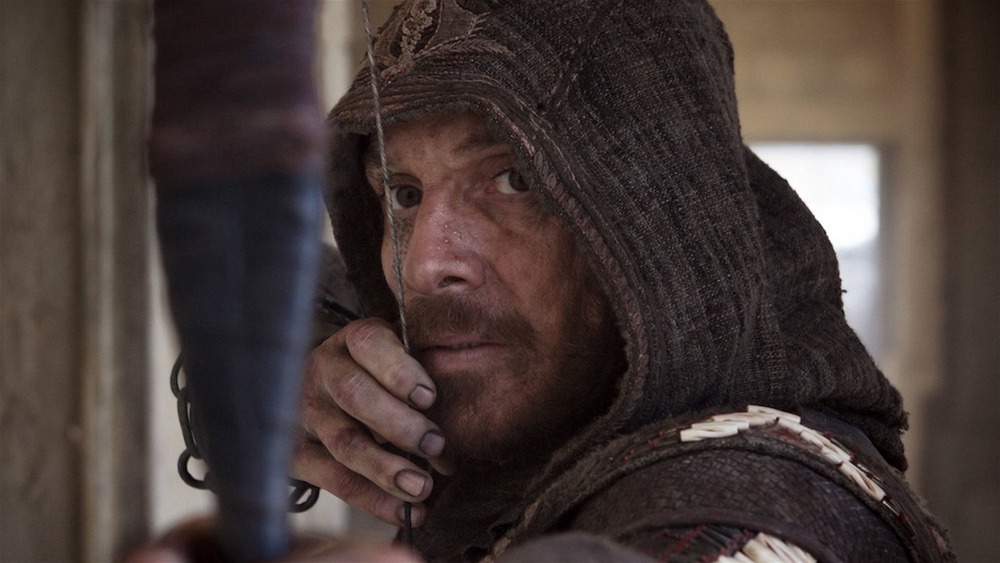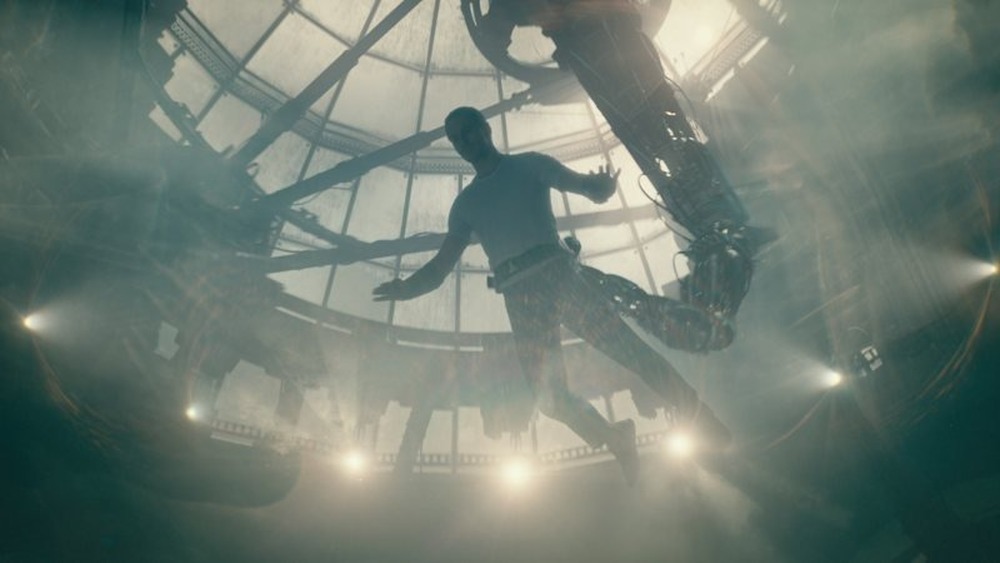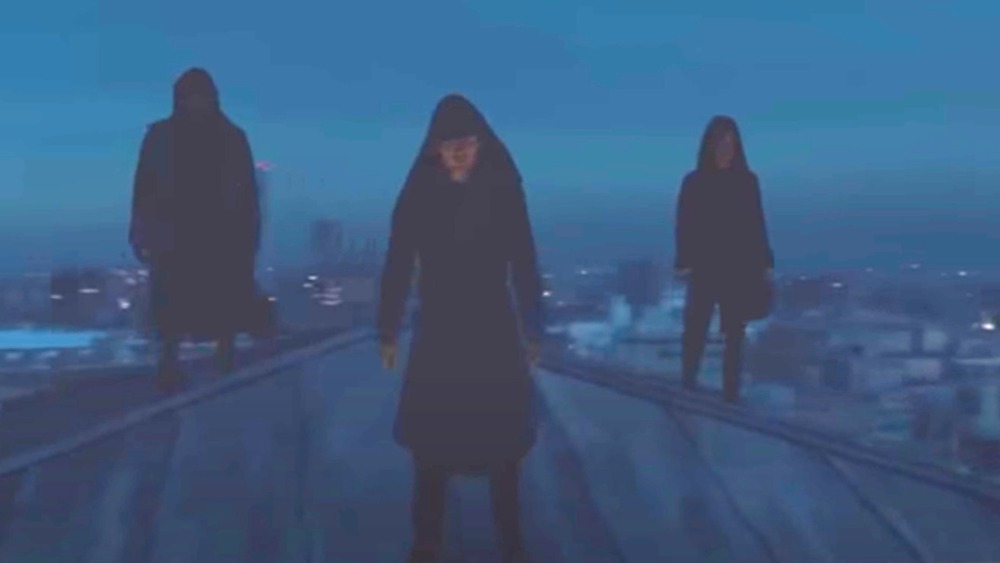The Ending Of Assassin's Creed Explained
As a video game franchise, Assassin's Creed has been hugely successful. Since 2007, the Ubisoft series has launched more than a dozen games and built a huge fan base, thanks to the clever way it takes players through some of history's most unforgettable events. Unfortunately, that popularity didn't quite translate to the big screen in 2016, when Justin Kurzel's Assassin's Creed adaptation was released.
Despite its intriguing premise, Assassin's Creed was not a huge hit with fans or critics, and it has largely faded into obscurity in the years since. But recent news about a live-action Netflix adaptation of the game series is as good a reason as any to revisit the film, because it may offer some clues about what we can expect to see. So, with that in mind, let's take a look at what happens at the end of Assassin's Creed the movie – though, of course, there will be spoilers ahead.
In Assassin's Creed, Cal Lynch learns an important history lesson
Like the video game series that inspired it, Assassin's Creed leans heavily into historical elements to tell its story, invoking everything from Biblical stories to the Knights Templar. It also follows the video games' basic narrative structure — it introduces us to Cal Lynch in the present day before plunging him (and us) deep into the past, creating a dual narrative that still feels inherently connected, largely because Michael Fassbender plays the pivotal character in both timelines. Through the two stories, we learn that Cal is the last surviving descendant of Aguilar de Nerha. The assassin was the last known person to possess the Apple of Eden (of Adam and Eve fame), which Alan Rikkin (Jeremy Irons), of the modern Templar Order, is desperately seeking.
So, he straps Cal to the Animus, unlocking an incredible connection between past and present. Cal travels back in time (in his mind, anyway) to relive crucial parts of Aguilar's life in 15th-century Spain. We see just how closely the past and present are intertwined, as Cal not only bears witness to Aguilar's combat skills in action but begins to absorb them as well. In the present, he realizes that Rikkin must be stopped before he takes hold of the Apple and uses it to control mankind.
The ending of Assassin's Creed sees the past and present melding together
Cal's entire journey in Assassin's Creed is about bridging the gap between his family's past and his own reality — and he realizes that he doesn't have to do it alone. He meets other descendants of assassins like Moussa (Michael K. Williams) and Shao Jun (Michelle H. Lin). Through Aguilar's memories, he is able to locate the Apple in the modern day, bringing that one important piece of history into the present. After defeating Rikkin with the help of his daughter Sofia (Marion Cotillard), Cal knows what he must do — and he embraces his heritage and dons an assassin's cloak.
Assassin's Creed ends with Cal, Apple in hand, standing on a rooftop with Moussa and Shao Jun, ready to protect his ancestor's most prized possession from others who would use it for evil. With this ending, Justin Kurzel definitely left the door open for more chapters. Cal's journey in understanding his family's past, while protecting his lineage in the present, has only just begun.
It seems unlikely there will be an Assassin's Creed 2, and it's an equally long shot that Michael Fassbender will be attached to the upcoming TV adaptation. But the beauty of Assassin's Creed is that its universe includes all of modern history. Now that Cal has brought the past and present together for the Lynch family, the new series could continue to explore their saga by delving into their history and further exploring the Assassins Brotherhood in the present day.


